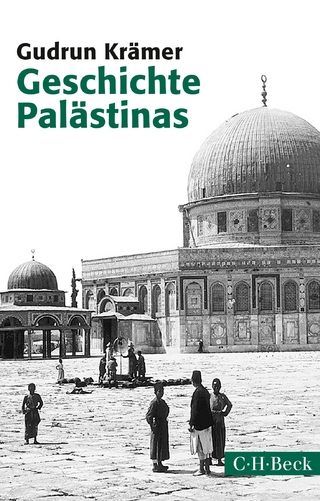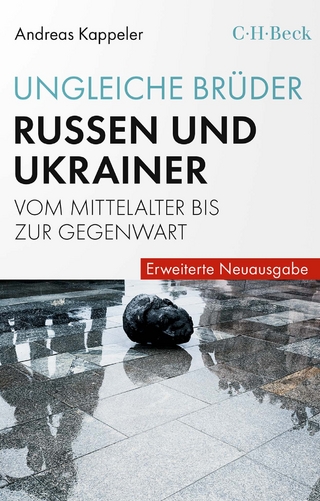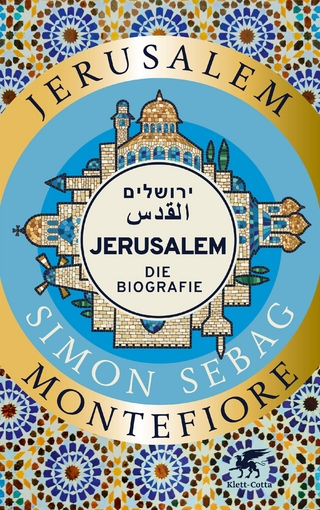
Black Toledo
Haymarket Books (Verlag)
978-1-60846-155-4 (ISBN)
The African American experience since the 19th century has included the resettlement of people from slavery to freedom, agriculture to industry, South to North, and rural to urban centres. This book is a documentary history of this process over more than 200 years in Toledo, Ohio. The volume includes articles from the Toledo Blade and local Black press, excerpts of doctoral and masters theses, and other specialist and popular writings from and about Toledo itself.
Abdul Alkalimat, Ph.D. (1974), University of Chicago, is Professor Emeritus of African American Studies and Information at the University of Illinois at Urbana-Champaign. His last book is Roots and Flowers: The Life and Work of Afro-Cuban Librarian Marta Terry González (Library Juice Press, 2015). Rubin Patterson, Ph.D. (1992), Howard University, is Professor and Chair of the Department of Sociology and Criminology and Director of Environmental Studies at that university. His last book is Greening Africana Studies: Linking Environmental Studies with Transforming Black Experiences (Temple University Press, 2015).
Foreword
Nikki M. Taylor
Acknowledgements
List of Illustrations
1 Introduction
Abdul Alkalimat and Rubin Patterson
1.1 Three Key Theoretical Issues
1.2 How This Book Is Organized
1.3 How This Book May Be Used
2 Origin (1787–1900)
2.1 Founding Documents (Documents 1–5)
2.1.1 The First Law: The Northwest Ordinance (1787)
2.1.2 The Second Law: Ohio Black Laws (1804)
2.1.3 13th Amendment to the u.s. Constitution (1865)
2.1.4 Reconstruction: Civil Rights Act (1875)
2.1.5 Supreme Court Overturns Civil Rights Act
2.2 Dialectics of Settlement (Documents 6–15)
2.2.1 The Underground Railroad
2.2.2 Armed Struggle
2.2.3 Desegregation
2.2.4 Underground Railroad in Toledo
2.2.5 Taking Boats to Freedom in Canada
2.2.6 Elijah Anderson: General Superintendent of the Underground Railroad in Northwest Ohio
2.2.7 Lathrop House (1835–2005)
2.2.8 James Ashley’s Eyewitness Account of the Hanging of John Brown (1859)
2.2.9 The Toledo Riot of 1862
2.2.10 Frederick Douglass and Sojourner Truth Speak in Toledo (1864)
2.2.11 The Blade, the Black Man, and the Vote (1867)
2.2.12 Toledo School Desegregation (1871)
2.3 Emergence of a Community Vanguard (Documents 15–18)
2.3.1 Founding of Warren ame Church (1864)
2.3.2 Prince Hall Freemasonry in Toledo (1864)
2.3.3 Moses Fleetwood Walker (1857–1919)
2.3.4 Stagecoach Mary (1870–1885)
3 Formation of Community Life (1900–1950)
3.1 Economics of Survival (Documents 19–27)
3.1.1 Toledo’s Black Labor Force (1890–1910)
3.1.2 Black Population Growth 1910–1930
3.1.3 Industrial Status of Employment 1936
3.1.4 Neighborhood Segregation
3.1.5 Black Access to Housing (1940–1950)
3.1.6 Toledo’s Black Middle Class (1926)
3.1.7 Toledo’s Black Middle Class (1936)
3.1.8 The Pinewood Avenue District (1929)
3.1.9 East Toledo
3.2 Cultural Capital (Documents 28–31)
3.2.1 Paul Laurence Dunbar Reads in Toledo (1900)
3.2.2 Art Tatum Performs in Toledo
3.2.3 The Depression
3.2.4 The Culture of Black Baseball
3.3 Organization and Leadership (Documents 32–42)
3.3.1 The Frederick Douglass Community Center
3.3.2 Interracial Activities in Toledo (1922)
3.3.3 Club Life in Toledo (1900–1920)
3.3.4 Henrietta Society (1883–present)
3.3.5 Fighting the Toledo Klu Klux Klan (1915–1944)
3.3.6 Housing and Racial Violence (1929)
3.3.7 Blacks in Toledo Schools (1927)
3.3.8 J.B. Simmons: Toledo’s First Black Councilman
3.3.9 James Slater Gibson: A Lawyer Who Pursued Social Justice
3.3.10 Cornelius Edwoods: Publisher of The Observer Newspaper (1920s)
3.3.11 Frances Alexander Belcher (1912–1963)
4 Community Development and Struggle (1950–2000)
4.1 Community and Consciousness (Documents 43–48)
4.1.1 Dorr Street: Toledo’s Black Downtown
4.1.2 A Report on Black Life in Toledo (1950s)
4.1.3 When the Projects were New: Brand Whitlock (1940s–1950s)
4.1.4 The Late 60s: Black Pain and Gain
4.1.5 House of Day Funeral Service
4.1.6 Henry’s Jeweler & Giftware
4.2 Culture and Education (Documents 49–69)
4.2.1 The Study Hour Club
4.2.2 Shops Promoted Afro-Culture (1968)
4.2.3 Rev. Al Reed Opens Negro History Book Store (1970)
4.2.4 Hines Farm Blues Club
4.2.5 Art Tatum and Toledo’s Popular Culture in the Twenties
4.2.6 Jon Hendricks First Begins Singing in Toledo
4.2.7 Murphy’s Place
4.2.8 wxts: Radio Jazz from High School
4.2.9 Tension at Scott after Negro Homecoming Queen Elected (1957)
4.2.10 The Declaration of the ut Black Student Union (1970)
4.2.11 Hiring Blacks at tu (1986)
4.2.12 Flute Rice: First Black Principal of Scott High School (1968)
4.2.13 Afro Ball Celebrates Heritage (1981-present)
4.2.14 Crystal Ellis Named First African American Superintendent of Toledo Schools
4.2.15 Wilbert “Skeeter” McClure
4.2.16 Chuck Ealey
4.2.17 Black Leadership: Sycophants and Taunters
4.2.18 Blacks at ut Protest “Injustice”
4.2.19 ut President Meets with Black Students (1994)
4.2.20 Jeff Johnson, Black Student Leader at ut (1994)
4.2.21 Abdul Alkalimat Appointed Head of Africana Studies at ut
4.3 Leadership and Vision (Documents 70–79)
4.3.1 Ardella Law Reed (1918–1989)
4.3.2 Ella P. Stewart (1893–1987)
4.3.3 Robert V. Franklin, Jr.: Leader in Law and Society
4.3.4 Civic Leader Cordelia Martin
4.3.5 Wayman Palmer
4.3.6 Black Panthers Patrol Dorr Street
4.3.7 Local Black Leaders Hail King Holiday (1983)
4.3.8 Jimmy Jackson, Sports Hero and Businessman
4.3.9 Social Cyberpower in the Everyday Life of an African American Community (2004)
4.3.10 Powell’s Beauty & Barber Supplies
5 Survival during Deindustrialization (2000–2016)
5.1 Facing Poverty and Twenty-first-century Racism
5.1.1 Population
5.1.2 Nazi March
5.1.3 Black Males
5.1.4 The Importance of Black Business
5.2 The Challenges of Black Leadership
5.2.1 Jack Ford
5.2.2 Michael Bell
5.2.3 Paula Hicks-Hudson
5.2.4 Edna Brown
5.2.5 Coalition of Black Trade Unionists
5.2.6 Top Toledoans of 2009
5.2.7 Black Women Physicians and Dentists
5.3 Diverse Black Education Leaders and Activities
5.3.1 Ella P. Stewart Academy
5.3.2 Romules Durant School Superintendent
5.3.3 Helen Cooks and Toledo Excel
5.3.4 Simmie Blakney: First Black Department Chair at the University of Toledo
5.3.5 Pauline Kynard
5.3.6 Angela Siner
5.3.7 Green Column and Green Africana Studies
5.3.8 Edwina Kofi-Opata and Green Africana Studies
5.3.9 Improving African American Male Graduation Rates: Eliminating the Black—White Graduation Gap
5.3.10 Retention and Graduation Taskforce: Diversifying Student Retention and Academic Success
5.4 Revitalization of Community
5.4.1 Restoring the Afro-Ball
5.4.2 Steppin in Toledo
5.4.3 Steel Guitar Sacred Music
5.4.4 Charles Welch
5.4.5 African American Festival
5.4.6 Toledo Horsemen Club
5.4.7 History of the African American Legacy Project
5.4.8 Black Lives Matter Resolution
5.4.9 Name Change at Scott High School
5.4.10 Art Tatum African American Resource Center
6 Black Toledo: The Historical Impulse toward Social Justice
Abdul Alkalimat and Rubin Patterson
6.1 Theoretical Reflection
6.2 Historical Periodization and Social Transformation
6.3 Dialectics of Urbanization and Proletarianization
6.4 Dialectics of Inequality and Democracy
6.5 Culture and Social Solidarity
6.6 Memory and Community Sustainability
6.7 Situating Black Toledo Vis-à-vis Other Books on Urban Black Experiences
Available African American Materials
Bibliography
Index
| Erscheinungsdatum | 30.10.2018 |
|---|---|
| Verlagsort | Chicago |
| Sprache | englisch |
| Maße | 152 x 228 mm |
| Themenwelt | Sachbuch/Ratgeber ► Geschichte / Politik ► Regional- / Landesgeschichte |
| Geisteswissenschaften ► Geschichte ► Regional- / Ländergeschichte | |
| Sozialwissenschaften ► Ethnologie | |
| Sozialwissenschaften ► Politik / Verwaltung | |
| Sozialwissenschaften ► Soziologie | |
| ISBN-10 | 1-60846-155-6 / 1608461556 |
| ISBN-13 | 978-1-60846-155-4 / 9781608461554 |
| Zustand | Neuware |
| Haben Sie eine Frage zum Produkt? |
aus dem Bereich


